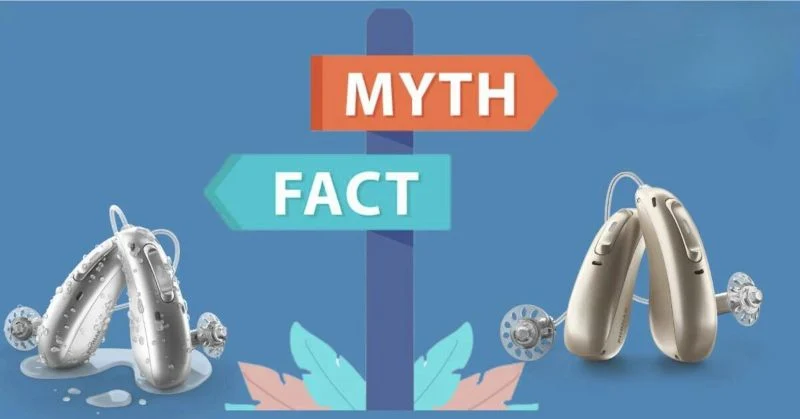When it comes to hearing health, many people worldwide are facing the problem of hearing loss. There are numerous misconceptions surrounding it. If you know about hearing loss, it affects your life and is very essential for maintaining good health. These myths can prevent you from seeking the necessary help and treatment. At Meenakshi Speech and Hearing Clinic, we aim to provide you with correct information and common hearing loss myths. In this blog, we can explore common myths about hearing loss and provide you with important hearing health facts.
Here are some myths to understand and help with hearing loss implications.
Myth 1: Hearing loss affects only adults.
Fact: Hearing loss affects all ages of life. Age-related hearing loss is common in young adults, children, and teenagers due to a genetic factor, exposure to loud music, infection, or certain other reasons. So hearing tests are important for everyone, regardless of age.
Myth 2: A hearing loss problem in one ear is not serious.
Fact: Hearing loss in one ear impacts your life. It impacts your communication, spatial awareness, and noisy environments. It’s important to consult an audiologist and a professional doctor if you notice a problem with your hearing in one ear to prevent serious issues.
Myth 3: Hearing aids only cause severe hearing loss.
Fact: Hearing aids are effective for everyone facing a problem with mild-to-severe hearing loss. Early use of hearing aids improves your communication and quality of life. Today’s hearing comes with advanced features, is discreet, and is customized for individual needs.
Myth 4: Hearing loss is a normal part of aging.
Fact: While age-related hearing loss is common, it is not certain. Regular check-ups and early intermediation can help you manage hearing loss. There are many treatment options available to enhance your hearing ability.
Myth 5: Loud music and noisy environments cause permanent damage.
Fact: A loud sound or music can lead to a problem in the ear or hearing damage. It is good for using headphones, earplugs, or a hearing aid device in noisy environments to protect your ear and keep a volume-safe level to prevent noise-induced hearing loss.
Myth 6: Hearing loss has no impact on health.
Fact: Your untreated hearing loss impacts a serious health issue, including depression, social separation, loneliness, and cognitive decline. Hearing loss plays a vital role in your health and quality of life. It shows that those who are treated with hearing loss problems generally experience improved health and social engagement.
Myth 7: Hearing aids restore complete hearing
Fact: Hearing aids improve your hearing but do not restore normal levels. They improve sound quality, communication power, and speech understanding. It helps them interact with their surroundings effectively.
Myth 8: You can self-diagnose and self-treat hearing loss.
Fact: Hearing loss is diagnosed and treated by a professional doctor and audiologist. Self-diagnosis creates the wrong assumption and incomplete treatment. A professional audiologist correctly helps you choose a hearing aid device and gives you a proper guide related to your hearing loss.
Myth 9: Hearing tests are unnecessary if you notice the problem.
Fact: Regular hearing tests are essential if you notice a problem with your hearing. Hearing loss develops gradually, and early detection through routine hearing screening can improve your hearing and quality of life.
Importance of Addressing Hearing Loss
Addressing hearing loss on time and effectively is crucial. Here are some points hearing health remember :
- Regular screening: It helps in the early detection of hearing loss and prevents further damage.
- Protect your Ear: Use ear protection in a noisy environment, listen to low-level volume music, and follow safe listening practices.
- Seek Professional Help: If you identify hearing loss, consult a nearby audiologist clinic or come to Meenakshi Speech and Hearing Clinic for a comprehensive hearing evaluation and appropriate treatment options.
Conclusion
Understanding the truth behind these hearing loss myths and the facts is essential for maintaining good hearing health. By eliminating these misconceptions, we hope to encourage proactive hearing care and get appropriate treatment when it is necessary. Hearing loss misconceptions can prevent individuals from taking timely action, but awareness and education can help improve hearing health and overall quality of life.
If you identify hearing loss or want to ensure your hearing health is in top condition, schedule a hearing test with a professional doctor or audiologist.
At Meenakshi Speech and Hearing Clinic, we are dedicated to providing you with proper hearing care services to help you maintain hearing health and enjoy your life.
Please book an appointment on the website or call us!


